Top 10 Health Benefits of Pomegranate
Pomegranate is considered one of the healthiest fruits, which has a wide range of beneficial plant compounds that many other foods cannot rival. It has been ... read more...demonstrated in studies to have numerous health benefits and reduce the risk of various diseases. Here are some pomegranate health benefits that have been scientifically proven.
-
The arils, or small pink seeds within a pomegranate, are the edible part of the fruit. While removing them from the fruit's inner flesh might be time-consuming, the nutritious value and flavor are well worth the effort. Pomegranates are abundant in fiber, vitamins, and minerals but low in calories and fat. They're also high in protein. The nutrients for the arils in an average (282-gram) pomegranate fruit are listed below:
- Calories: 234
- Protein: 4.7 grams
- Fat: 3.3 grams
- Carbohydrates: 52 grams
- Sugar: 38.6 grams
- Fiber: 11.3 grams
- Calcium: 28.2 mg, or 2% of the Daily Value (DV)
- Iron: 0.85 mg, or 5% of the DV
- Magnesium: 33.8 mg, or 8% of the DV
- Phosphorus: 102 mg, or 8% of the DV
- Potassium: 666 mg, or 13% of the DV
- Vitamin C: 28.8 mg, or 32% of the DV
- Folate (vitamin B9): 107 mcg, or 27% of the DV
A 1/2-cup (87-gram) serving of arils, on the other hand, has 72 calories, 16 grams of carbohydrates, 3.5 grams of fiber, 1 gram of fat, and 1.5 grams of protein. Keep in mind that pomegranate and aril nutritional information differs from that of pomegranate juice, which lacks fiber and vitamin C. This is typical of all fruits, eating the whole fruit offers more fiber.
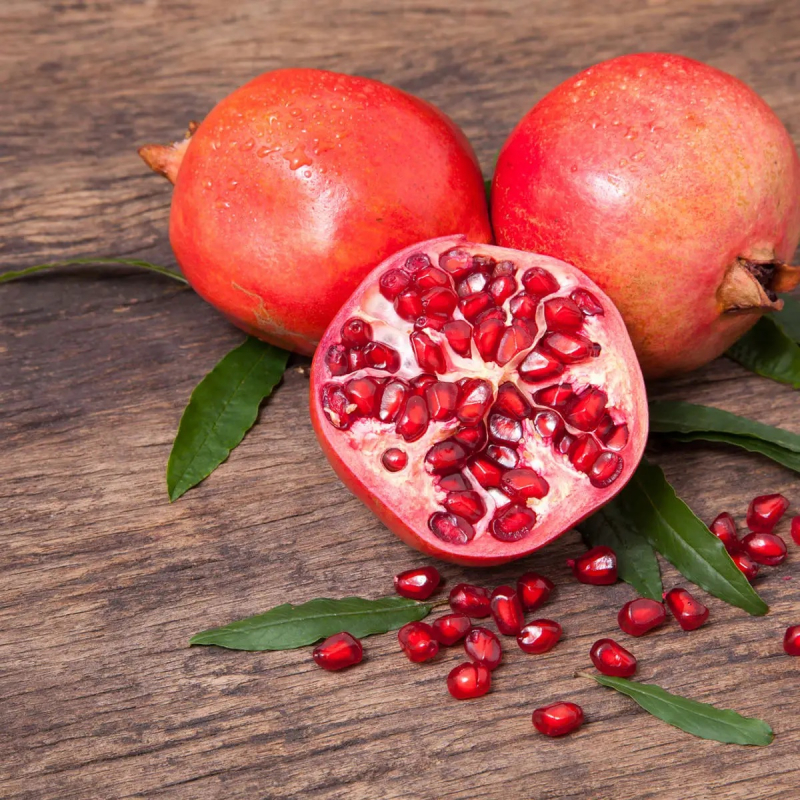
Packed with nutrients 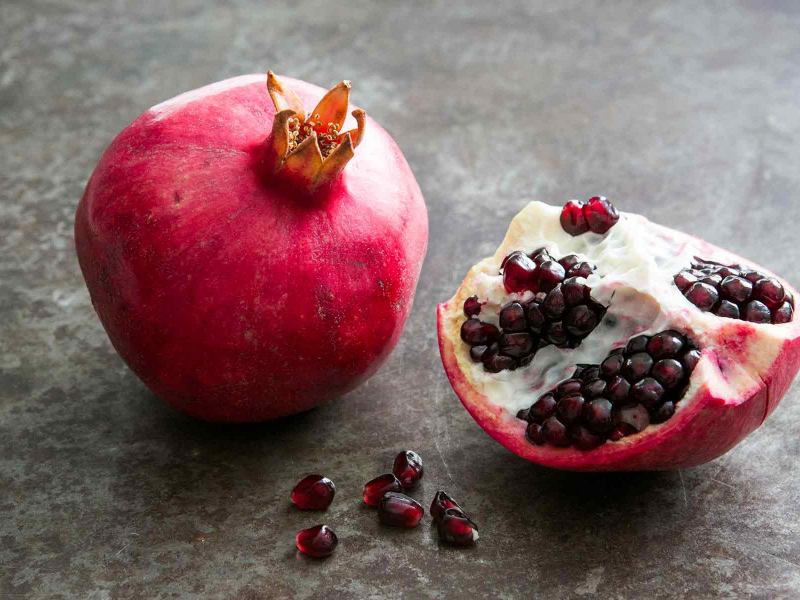
Packed with nutrients -
Antioxidants are substances that help protect your body's cells from free radical damage. Free radicals are present in your body at all times, but an excess of them can be harmful and lead to a variety of chronic diseases.
Pomegranates are high in antioxidants and polyphenolic compounds, which protect the body from oxidative stress. Punicalagins, anthocyanins, and hydrolyzable tannins are the major bioactive compounds in pomegranates that have antioxidant activity. Especially, punicalagin, found in pomegranate juice and seed pods, is a powerful antioxidant. This compound is so powerful that it has been found that pomegranate juice has three times the antioxidant activity of red wine and green tea. Getting antioxidants from fruits like pomegranates is a great way to boost overall health and disease prevention.
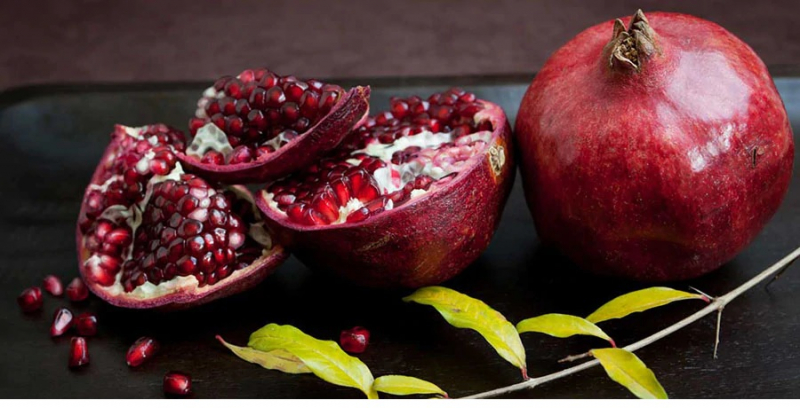
Rich in antioxidants 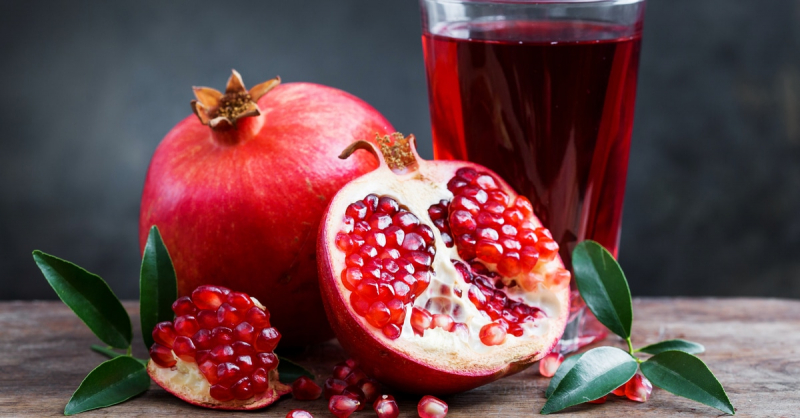
Rich in antioxidants -
Inflammation is a natural biological reaction to infection and injury that lasts just a few days. Chronic inflammation, on the other hand, maybe a problem if left untreated - and it's very common nowadays, especially in Westernized countries. Inflammation can contribute to a variety of chronic conditions, including heart disease, type 2 diabetes, cancer, and Alzheimer's disease if it isn't addressed.
Pomegranates may help prevent chronic inflammation, which has been linked to an increased risk of chronic disease. Punicalagins, which have been found to have antioxidant and anti-inflammatory properties in test-tube and animal experiments, are mostly responsible for this. Pomegranate juice has also been shown in human tests to lower inflammation markers in the body. However, more study on how eating fresh pomegranate seeds affects inflammation in humans is still needed.
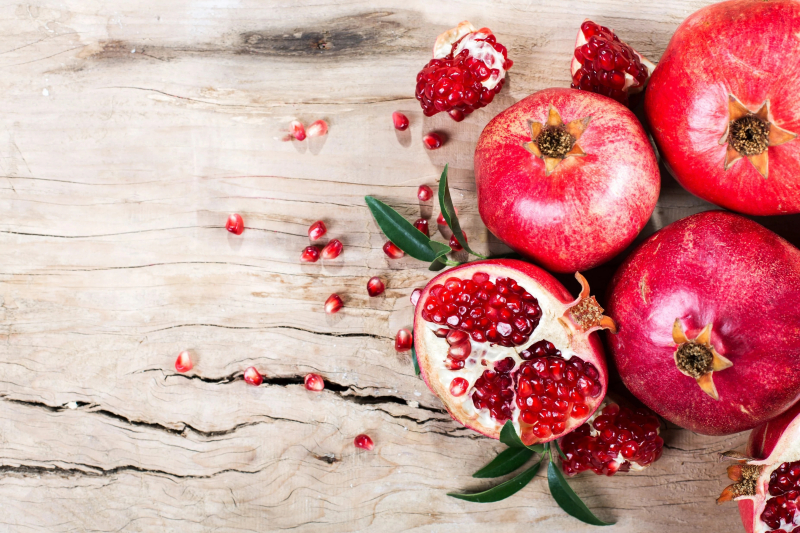
Help keep inflammation at bay 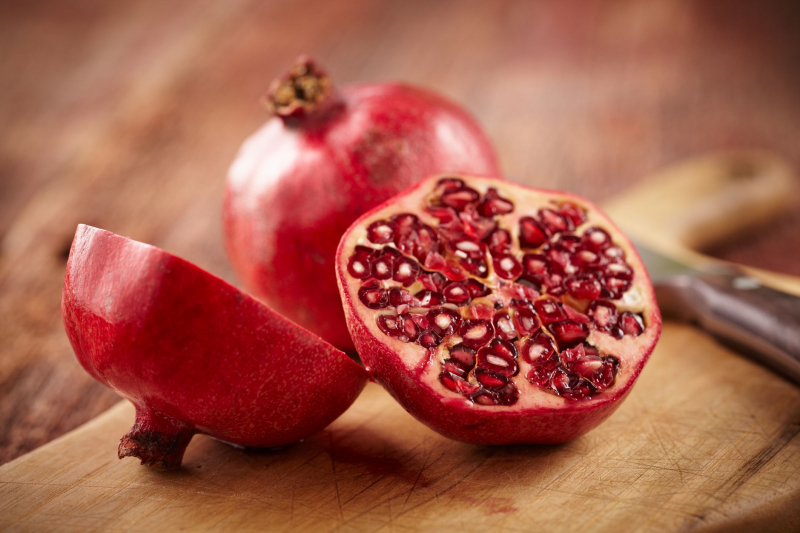
Help keep inflammation at bay -
Compounds present in pomegranate fruit, juice, and oil have been shown in test tubes to help kill cancer cells or slow their spread in the body.
Pomegranate has been found to help combat inflammation and reduce cancer cell development in both test-tube and human trials. In fact, the fruit has been shown to have anti-tumor properties in lung, breast, prostate, skin, and colon cancers. Pomegranate has also been shown in animal studies to help decrease tumor development in the early stages of liver cancer. It also helps in the reduction of inflammatory and oxidative stress responses. Pomegranate extract may also be beneficial for reducing the growth, or even destroying, prostate cancer cells, according to older test-tube research. PSA (prostate-specific antigen) is a blood marker for prostate cancer. When PSA levels double in a short period of time, it means you're at a much high risk of death from prostate cancer. In two previous studies, providing men with pomegranate juice or extract dramatically prolonged the PSA doubling time period, lowering the chance of prostate cancer death.
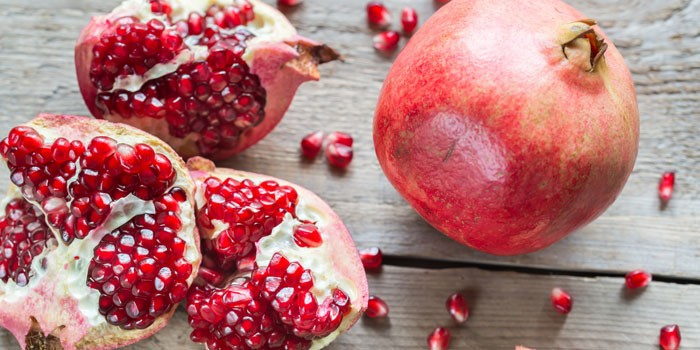
Have anticancer properties 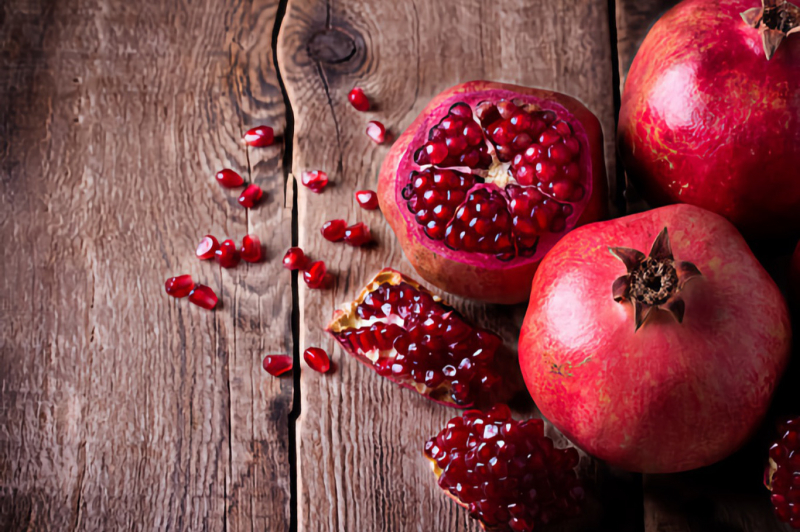
Have anticancer properties -
Fruits high in polyphenolic compounds, such as pomegranate, have been shown to improve heart health. Pomegranate extract has been proven to reduce oxidative stress and inflammation in the arteries, lower blood pressure, and help fight atherosclerosis, which is plaque buildup in the arteries that may lead to heart attacks and strokes, according to test-tube research.
People with heart disease were given 1 cup (220 mL) of pomegranate juice every day for 5 days in one human research. The juice greatly decreased the frequency and severity of chest pain, as well as specific blood biomarkers that suggest a heart-healthy effect. Still, there is a lack of high-quality human studies on pomegranates and heart health.
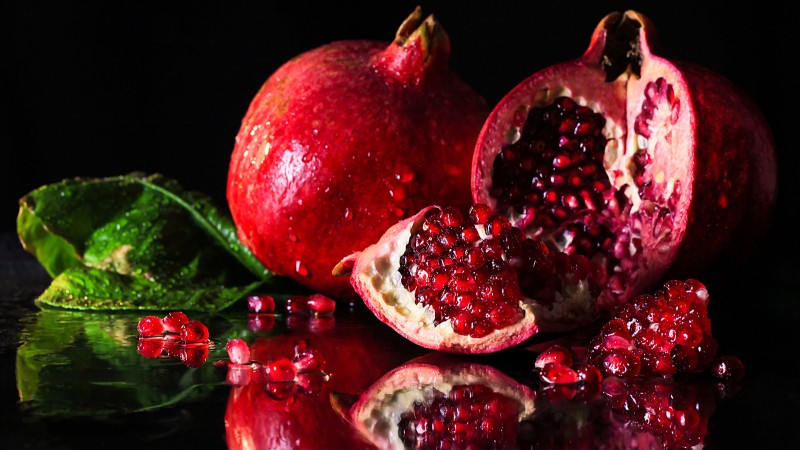
Have heart health benefits 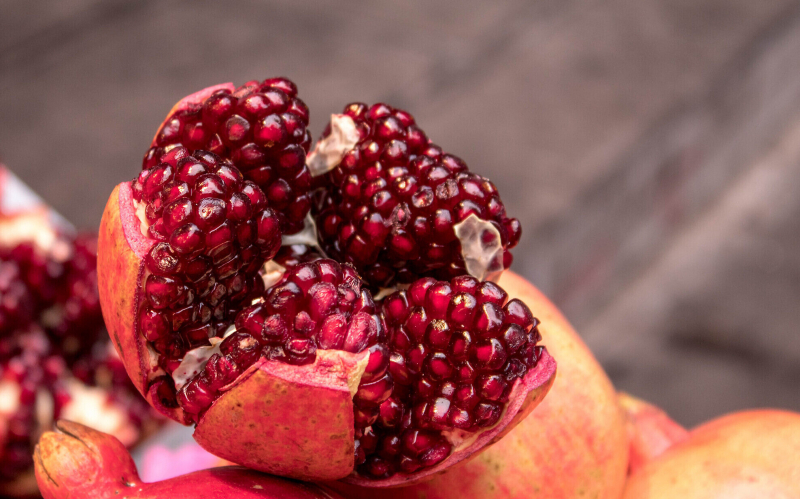
Have heart health benefits -
Pomegranate extract has been demonstrated to prevent the formation of kidney stones in both test tubes and humans, a benefit that is mostly related to its antioxidant activity. Pomegranate juice is high in antioxidants and Vitamin C, which can help with UTI (Urinary Tract Infection) symptoms. Antioxidant properties prevent bacteria from sticking to bladder walls, while Vitamin C boosts the immune system and helps fight infections.
Adults aged 18–70 who had recurrent kidney stones were given 1,000 mg of pomegranate extract for 90 days in one research. This was found to help in the inhibition of the process that causes stones to form in the body. Pomegranate extract has also been shown in animal studies to help regulate the levels of oxalates, calcium, and phosphates in the blood, all of which are major components of kidney stones.
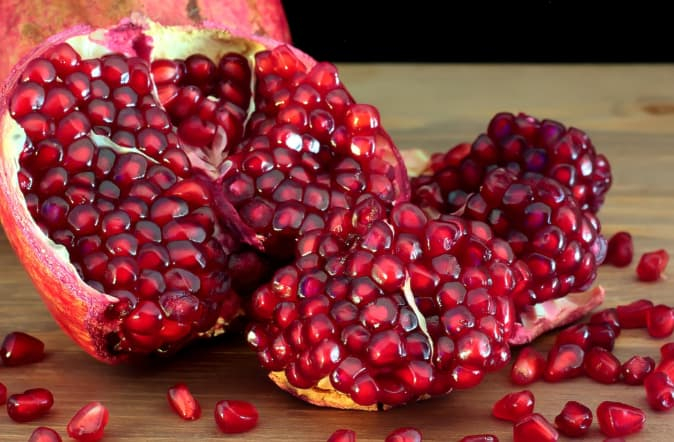
Support urinary health 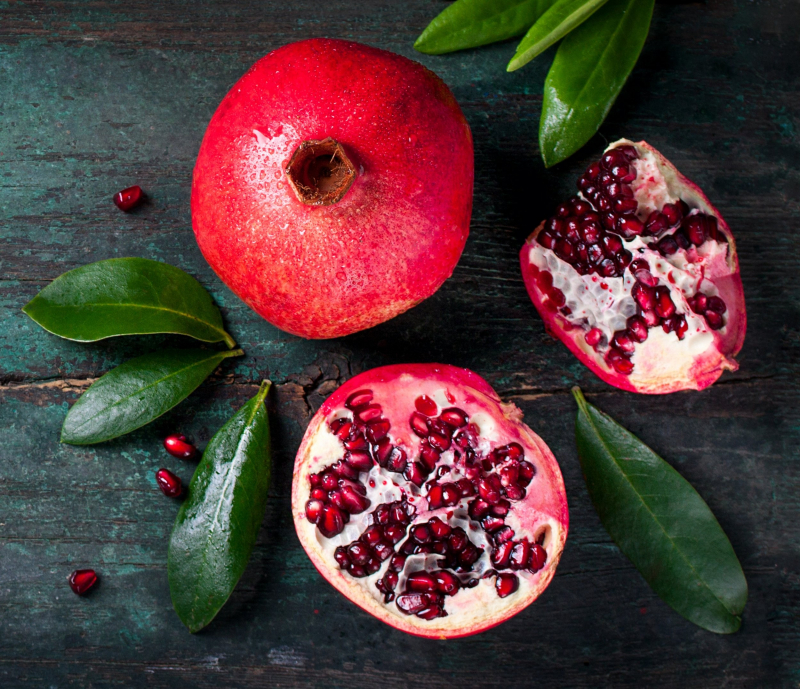
Support urinary health -
Pomegranate compounds may help in the battle against dangerous microbes such as bacteria, fungi, and yeast. For example, both older and newer research shows that they may protect your mouth's health by targeting unwanted oral germs that might become harmful when overgrown, such as those that cause bad breath and lead to tooth decay.
Pomegranate compounds also demonstrated antibacterial effects against Listeria monocytogenes, a bacteria found in moist environments that can cause serious illness if ingested, according to one test-tube research. Gingivitis, periodontitis, and denture stomatitis are all caused by infections and inflammation in the oral cavity, and pomegranate's antibacterial and antifungal properties can help.

Have antimicrobial properties 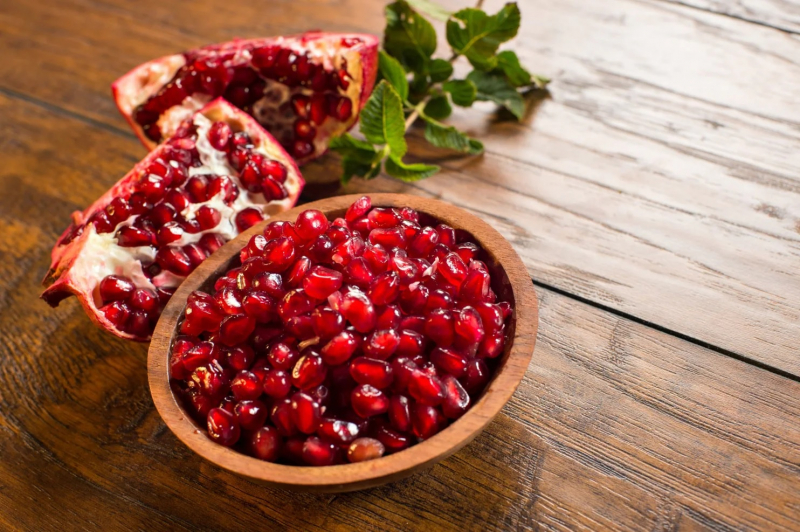
Have antimicrobial properties -
Pomegranate polyphenols may improve exercise endurance or the length of time you can do physical activity before becoming exhausted. Nitrates found in pomegranates have been demonstrated to boost workout performance. One gram of pomegranate extract taken 30 minutes before exercise enhanced blood flow, reduced fatigue, and prolonged exercise time in a trial of 19 treadmill runners.
By increasing the amount of time you spend exercising and the efficiency with which you exercise. Pomegranates appear to be useful for physical performance, although further research is needed. Furthermore, pomegranate supplements have also been shown in human studies to boost both exercise endurance and muscle recovery.
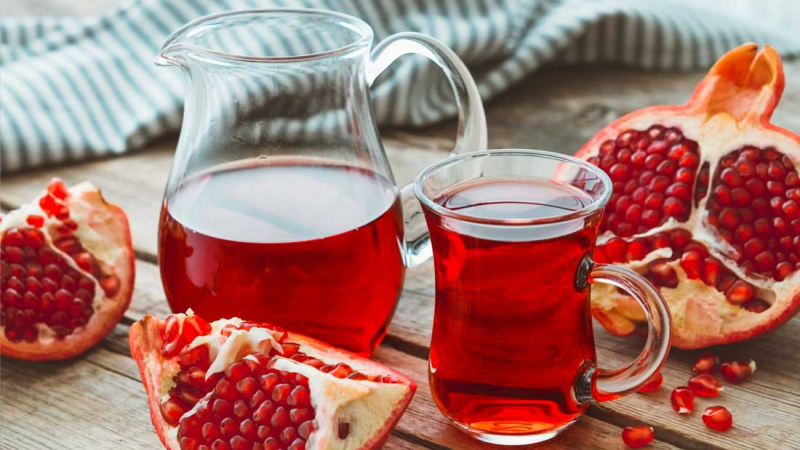
Improve exercise endurance 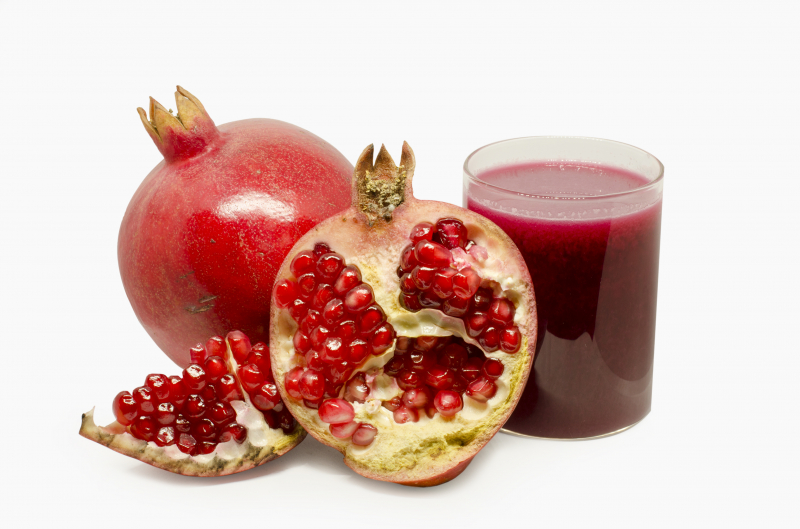
Improve exercise endurance -
Pomegranates include ellagitannins, which are antioxidants that help the body reduce inflammation. As a result, they also provide protection for your brain against inflammation and oxidative stress conditions.
According to certain research, ellagitannins may help protect the brain against Alzheimer's and Parkinson's disease by lowering oxidative damage and boosting brain cell survival. They may also help with hypoxic-ischemic brain injury recovery. Pomegranate ellagitannins are suggested to be involved in the production of urolithin A, a compound that has been researched for its capacity to decrease inflammation in the brain and delay the onset of cognitive diseases. Pomegranates also have been shown to boost memory in various studies. In one trial of surgical patients, 2 grams of pomegranate extract was proven to help reduce memory loss after surgery.
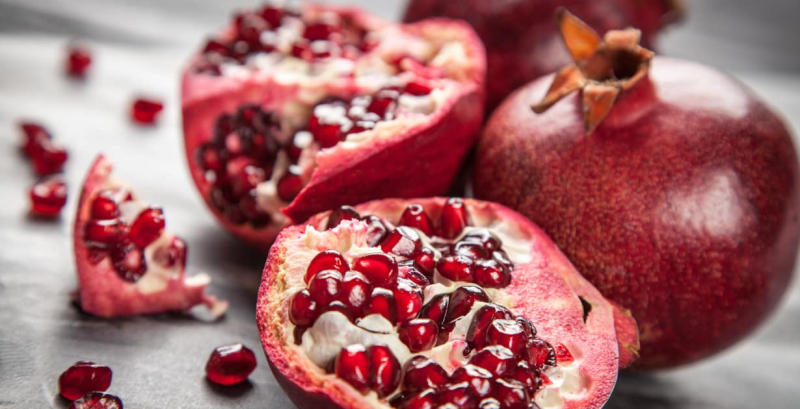
Good for your brain 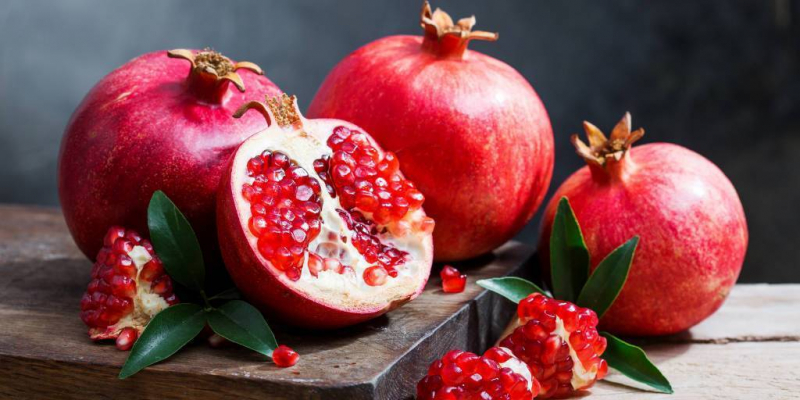
Good for your brain -
Digestive health, which is mostly determined by your gut bacteria, is strongly linked to overall health, according to both old and new research. As a result, it's essential to take care of your digestive system, and pomegranate can help.
Pomegranate has anti-inflammatory and anti-cancer effects that are mostly due to its ellagic acid content, according to some older and newer animal studies. Pomegranate has also been shown in test tubes to boost levels of beneficial gut bacteria such as Bifidobacterium and Lactobacillus, meaning that it may have prebiotic properties. Prebiotics are compounds, generally fibers, that serve as fuel for the healthy bacteria in your digestive tract, also known as probiotics. Prebiotics supports the growth of these bacteria, resulting in a healthy gut microbiome. Pomegranate arils are very high in fiber, with about 3.5 grams per 1/2 cup (87 gram) serving. Constipation, hemorrhoids, colon cancer, gastroesophageal reflux disease, and diverticulitis are some of the digestive conditions that fiber can help prevent.
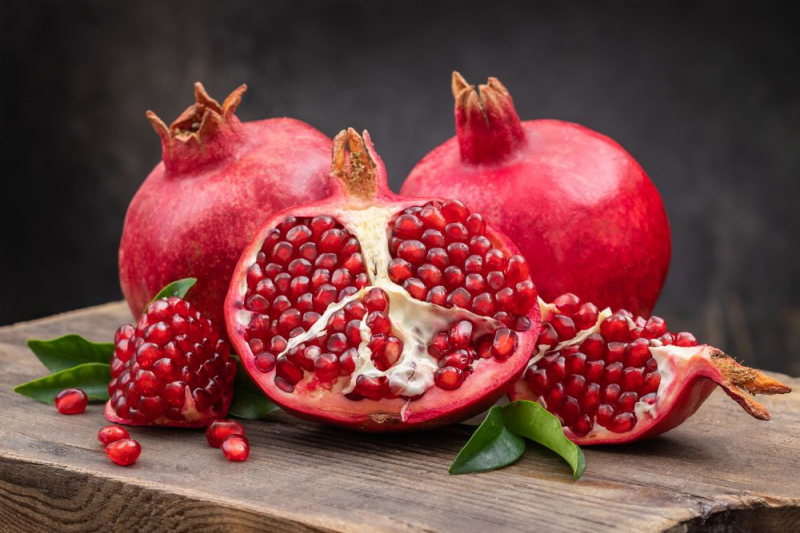
Support digestive health 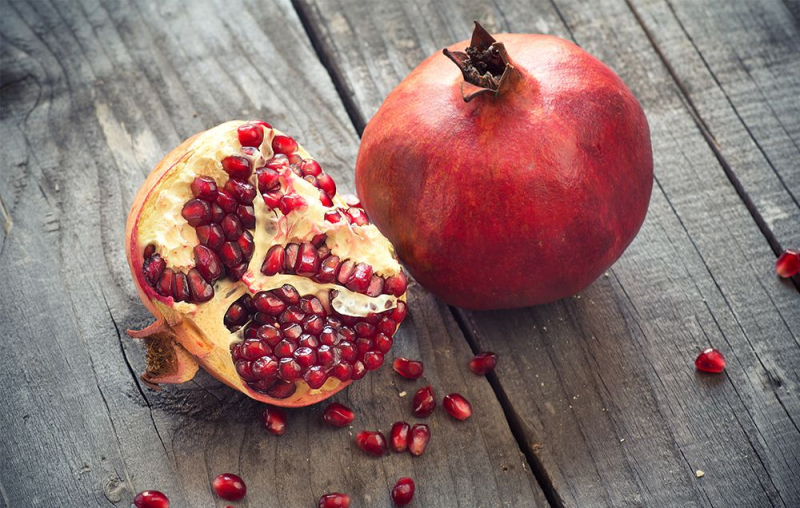
Support digestive health































